November 27, 2020
Search Results for: collaboration
November 23, 2020
Focus shifts to refurbishment as new office building in London falls by half
by Neil Franklin • News, Property
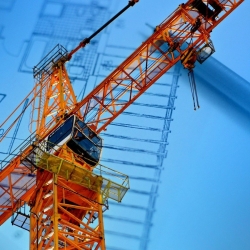 The construction of new offices in central London has declined by half (50 percent) in six months as developers and occupiers shift their focus to refurbishment, according to Deloitte Real Estate’s latest London Office Crane Survey. The crane survey analysed office building data over the six months to 30 September, and included a poll of London’s biggest developers conducted at the end of September. The total office space under construction in central London is now 15.1 million sq ft. This is similar to the level recorded in the previous survey (15.3 million sq ft, the highest since 2002) as developments are now taking longer to complete. (more…)
The construction of new offices in central London has declined by half (50 percent) in six months as developers and occupiers shift their focus to refurbishment, according to Deloitte Real Estate’s latest London Office Crane Survey. The crane survey analysed office building data over the six months to 30 September, and included a poll of London’s biggest developers conducted at the end of September. The total office space under construction in central London is now 15.1 million sq ft. This is similar to the level recorded in the previous survey (15.3 million sq ft, the highest since 2002) as developments are now taking longer to complete. (more…)
November 23, 2020
Mental health issues in young fathers caused by a lack of support in work and educational settings
by Jayne Smith • News, Wellbeing, Working culture
 New research published by Leeds Trinity University and parenting platform DaddiLife claims that young fathers face preventable barriers when accessing education and employment, leaving some in vulnerable positions with an increased risk of facing mental health issues. (more…)
New research published by Leeds Trinity University and parenting platform DaddiLife claims that young fathers face preventable barriers when accessing education and employment, leaving some in vulnerable positions with an increased risk of facing mental health issues. (more…)
November 23, 2020
The workplace to become more human-centric than ever, as priorities change
by Jayne Smith • Flexible working, News, Working culture, Working lives
 Companies are facing complex performance challenges as the COVID-19 resurgence heightens the need to reinvigorate employee engagement. JLL’s new “Human Experience” report explores these changing workforce dynamics and expectations in a post-pandemic world and offers insights for how forward-thinking companies can reimagine their approach to managing their people and workplaces to stay ahead in 2021. (more…)
Companies are facing complex performance challenges as the COVID-19 resurgence heightens the need to reinvigorate employee engagement. JLL’s new “Human Experience” report explores these changing workforce dynamics and expectations in a post-pandemic world and offers insights for how forward-thinking companies can reimagine their approach to managing their people and workplaces to stay ahead in 2021. (more…)
November 20, 2020
Hybrid working model is the preferred choice of workers now
by Jayne Smith • Flexible working, News, Working culture, Working lives
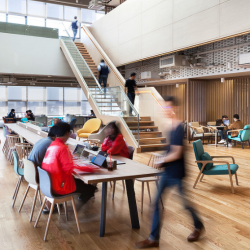 A survey issued by architecture, design, and planning firm Gensler suggests that rumours of the demise of the office may be greatly exaggerated. However, over two-thirds of UK workers don’t want to go back to their old working lives either, preferring a hybrid working model, spending between 1 and 4 days in the office each week. (more…)
A survey issued by architecture, design, and planning firm Gensler suggests that rumours of the demise of the office may be greatly exaggerated. However, over two-thirds of UK workers don’t want to go back to their old working lives either, preferring a hybrid working model, spending between 1 and 4 days in the office each week. (more…)
November 19, 2020
Covid-19 is levelling the playing field for disabled workers
by Ruby Gullon • Comment, Flexible working, Wellbeing
 As many of us cope with yet another lockdown, optimism is easy to misplace but, for disabled workers, this could result in monumental change for future employment. On the month commencing the 25th anniversary of the Disability Discrimination Act and the run-up to International Day of Disabled Persons, could this be the final push for change? As we swing in and out of remote-working, whether you love it or loathe it, one thing is abundantly clear – it can be done. Something that the 2 billion people currently living with disabilities have always known. Life can be accessible anywhere if you put your mind to it. (more…)
As many of us cope with yet another lockdown, optimism is easy to misplace but, for disabled workers, this could result in monumental change for future employment. On the month commencing the 25th anniversary of the Disability Discrimination Act and the run-up to International Day of Disabled Persons, could this be the final push for change? As we swing in and out of remote-working, whether you love it or loathe it, one thing is abundantly clear – it can be done. Something that the 2 billion people currently living with disabilities have always known. Life can be accessible anywhere if you put your mind to it. (more…)
November 18, 2020
Missing that spark? The new hybrid working world
by Jayne Smith • News, Working culture
November 16, 2020
Built environment sector must think in radical ways and act quickly
by Neil Franklin • Cities, Environment, News
 The construction sector, the real estate industry and city planners must give high priority to the same goal – to drastically reduce their climate impacts. Powerful, combined efforts across all of the built environment sectors are absolutely crucial for the potential to achieve the UN’s sustainability goals. And what’s more – everything has to happen very quickly. These are the cornerstones to a roadmap presented at the recent Beyond 2020 World Conference. (more…)
The construction sector, the real estate industry and city planners must give high priority to the same goal – to drastically reduce their climate impacts. Powerful, combined efforts across all of the built environment sectors are absolutely crucial for the potential to achieve the UN’s sustainability goals. And what’s more – everything has to happen very quickly. These are the cornerstones to a roadmap presented at the recent Beyond 2020 World Conference. (more…)
November 6, 2020
Third of home workers feel disconnected, Leesman data shows
by Neil Franklin • Flexible working, News, Wellbeing
 Insights from Leesman’s ongoing home working study of more than 145,000 workers has revealed that a significant number of employees feel disconnected to their colleagues and organisation, while others struggle to maintain a healthy work-life balance. Over a third of home workers (35 percent) feel disconnected to their organisation when working from home and a further 31 percent feel disconnected to their colleagues, Leesman data has revealed. (more…)
Insights from Leesman’s ongoing home working study of more than 145,000 workers has revealed that a significant number of employees feel disconnected to their colleagues and organisation, while others struggle to maintain a healthy work-life balance. Over a third of home workers (35 percent) feel disconnected to their organisation when working from home and a further 31 percent feel disconnected to their colleagues, Leesman data has revealed. (more…)
November 5, 2020
Pick Everard reveals new bespoke HQ office space
by Freddie Steele • Company news
 Independent property, construction and infrastructure consultancy Pick Everard has unveiled its new-look head office following an extensive refurbishment led by its recently established in-house interior design team. (more…)
Independent property, construction and infrastructure consultancy Pick Everard has unveiled its new-look head office following an extensive refurbishment led by its recently established in-house interior design team. (more…)







 A new scheme for rating the operational energy efficiency of UK offices, NABERS UK, has been launched.
A new scheme for rating the operational energy efficiency of UK offices, NABERS UK, has been launched. 



 A new report from the
A new report from the 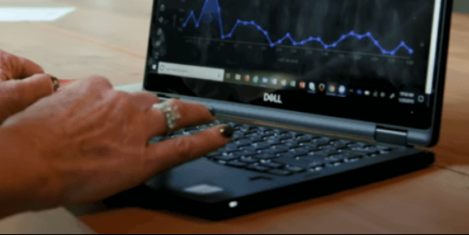
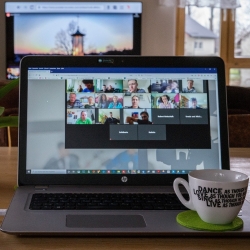 A new survey by
A new survey by 

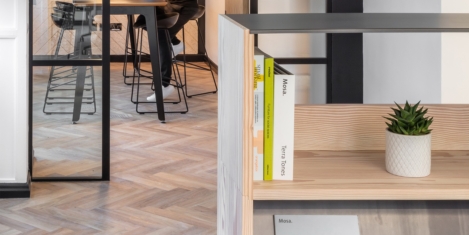









December 1, 2020
The great lesson of 2020 for small businesses is to be ready for anything
by Annil Chandel • Business, Comment